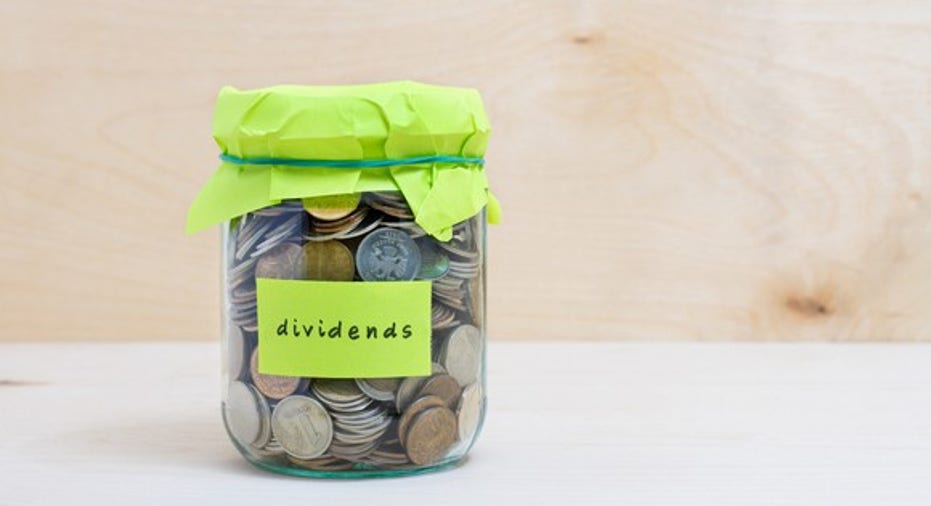How Does Pfizer's Dividend Stack Up?

Image source: Getty Images.
After the company reported disappointingthird-quarter results, Pfizer's (NYSE: PFE) dividend is starting to look like the primary reason to buy -- or hold -- this megacap pharma stock. After all, the drugmaker's earnings release was actually chock-full of bad news and worrisome trends that went well beyond its weaker-than-expected quarterly figures.
Here's a quick breakdown:
- Pfizer's breast cancer drug Ibrance and itspneumococcal bacteria vaccine Prevnar 13 -- which have been two of its leading growth products -- are apparently losing momentum sales-wise. Specifically, Ibrance's ability to capture new market share has reportedly begun to taper off; and Prevnar 13's global sales actually slid by 2%, on an operational basis, in the third quarter relative to a year ago.
- The drugmaker also decided to discontinue the development ofbococizumab, a novellipid-lowering agent that was expected to generate sales in the neighborhood of $2 billion at peak.
- Last but not least, Pfizer's legacy products business continued to show widespread weakness, with former star products like Lipitor and Zoloft posting noteworthy sales declines for the three-month period.
Now, Pfizer still sports modest single-digit growth prospects heading into 2017 -- despite these negative developments. However, this stock is arguably more attractive to investors looking for passive sources of income, rather than those interested in growth. With this in mind, let's take a look at how Pfizer's dividend stacks up against its big pharma and blue chip biotech peers in terms of yield and sustainability.
Pfizer's dividend is a mixed bag
At 3.7% at current levels, Pfizer's yield easily beats the average within its large-cap biopharma peer group, as illustrated by the chart below:
Data source:Yahoo! Finance.
However, it remains well below the monstrous yields offered by the British pharma giantGlaxoSmithKline (NYSE: GSK) (4.6%), as well as the French drugmaker Sanofi (NYSE: SNY) (4.3%). In other words, Pfizer's yield might be better than average for a major drug manufacturer, but it doesn't occupy the high-yield area of the curve set by companies like Glaxo and Sanofi.
As far as the sustainability part of the equation,Pfizer's trailing-12-month payout ratio of 102% doesn't exactly inspire confidence about the company's ability to maintain its above-average yield at current levels. The catch, however, is that Pfizer's sky-high payout ratio is actually below average for a large drugmaker:
Data source:Morningstar, Inc.
In fact, Pfizer's payout ratio is orders of magnitude lower than Glaxo's jaw-dropping 1,372.5%, and is on par with Sanofi's 92.3%.
Digging deeper reveals that Pfizer's substantial free cash flow and cash position stack up particularly well when pitted against the high-yielders Glaxo and Sanofi -- implying that its lower yield is ultimately more sustainable.
Is Pfizer worth buying for its dividend?
If we put its robust clinical program that sports a dozenpivotal studies with near-term readouts aside andsimply focus on its ability to perform as an income stock, Pfizer matches up well with its peer group. The obvious red flag, though, is its hefty payout ratio.
The good news is that Pfizer's strong cash position, combined with its proven ability to generate ginormous levels of free cash each quarter, should keep the drugmaker from having to slash its dividend anytime soon. Having said that, Pfizer's penchant for engaging in high-dollar mergers-and-acquisitions ventures could dramatically impact its balance sheet, perhaps triggering a dividend reduction.
All in all, Pfizer's above-average dividend does come across as a compelling reason to own this stock. Even so, income-seeking investors certainly shouldn't sleep on this stock -- as the company's appetite for M&A could necessitate critical changes to its capital distribution plan moving forward.
A secret billion-dollar stock opportunity The world's biggest tech company forgot to show you something, but a few Wall Street analysts and the Fool didn't miss a beat: There's a small company that's powering their brand-new gadgets and the coming revolution in technology. And we think its stock price has nearly unlimited room to run for early in-the-know investors! To be one of them, just click here.
George Budwell owns shares of Pfizer. The Motley Fool has no position in any of the stocks mentioned. Try any of our Foolish newsletter services free for 30 days. We Fools may not all hold the same opinions, but we all believe that considering a diverse range of insights makes us better investors. The Motley Fool has a disclosure policy.



















